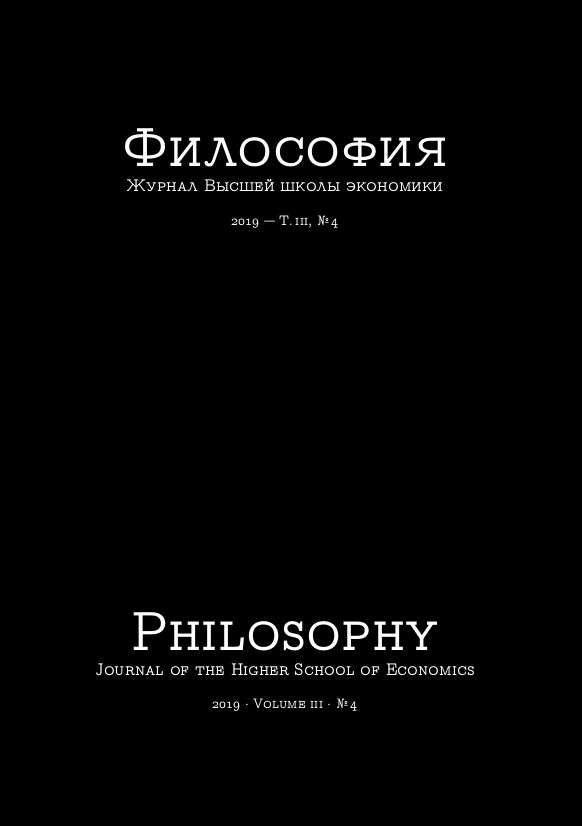Nature of Law and Law(s) of Nature
Abstract
The concept of law became the cornerstone of the European intellectual tradition since the Enlightenment of 18 c. Apart from the legal rules, the laws stricto sensu, laws of nature followed by linguistic norms came into focus right up to the laws regulating norms for violating laws. Therefore, the law concept reflection becomes a necessary element for every discourse which pretends to be philosophical or philosophical-historical as well.
Five of six articles constituting the "Studies" sections are devoted to the attempts for understanding the concept of "law" in three possible perspectives. In the opening article, Rodger Smith (IPh RAS) analyses the vision of laws of human nature in the French Enlightenment ideology (G. B. de Mably) and the impact of this position to the later European philosophy until the contemporary neuroscience and particularly neuroethics (the first issue of the journal in the 2020 year will be devoted to the problems of neuroethics). The following article by f. George Orekhanov (Saint Tikhon’s Orthodox University of the Humanities) is focused on the problem of F. M. Dostoevsky’s and L. N. Tolstoy’s reception of atheistic and anthropological views of L. von Feuerbach. The author emphasises the inner inconsistency in Feuerbach’s points, especially stressing the fact that Feuerbach did not take into account the irrational nature of evil in humans. The two following articles by S. Zenkin (RSUH; NRU HSE, SPb) and Ye. Velmezova (University of Lausanne) lay emphasis on the laws of language, though from different angles. Sergey Zenkin is interested in “the laws of transgression”, that is, “legitimate exceptions and violations” as reflected in language, particularly in fiction. Treating the problem in a more historical and not philosophical way, Yekaterina Velmezova analyses the famous linguistical discussion of the 1950s and interprets it as a dispute between Marr the academic and I. V. Stalin on laws. This problematic section is closed by the article by I. Svetlikova (NRU HSE, SPb) in joint authorship with two of her students, N. Kalinovskiy and M. Fesenko. Referring to V. V. Rozanov’s works, the authors explore the views of positivists of the beginning of the 20th c. on astronomy and astrology as sciences of human development.
The article by N. A. Kanayeva stands on its own in the same section. It is devoted to one of the controversial questions of Indian philosophy — the essence of Jain nayas.
In the “Translations and Publications” section the real crown jewel is published. It is the new translation of “The Consolation of Philosophy” into Russian. The translation was carried out by R. L. Shmarakov as well as the commentary.
Finally, the reviews section includes the Mikhail Nemtsev’s review of the recently published book by Yuriy Pushaev on the history of Soviet philosophy.
A. M.
Downloads






